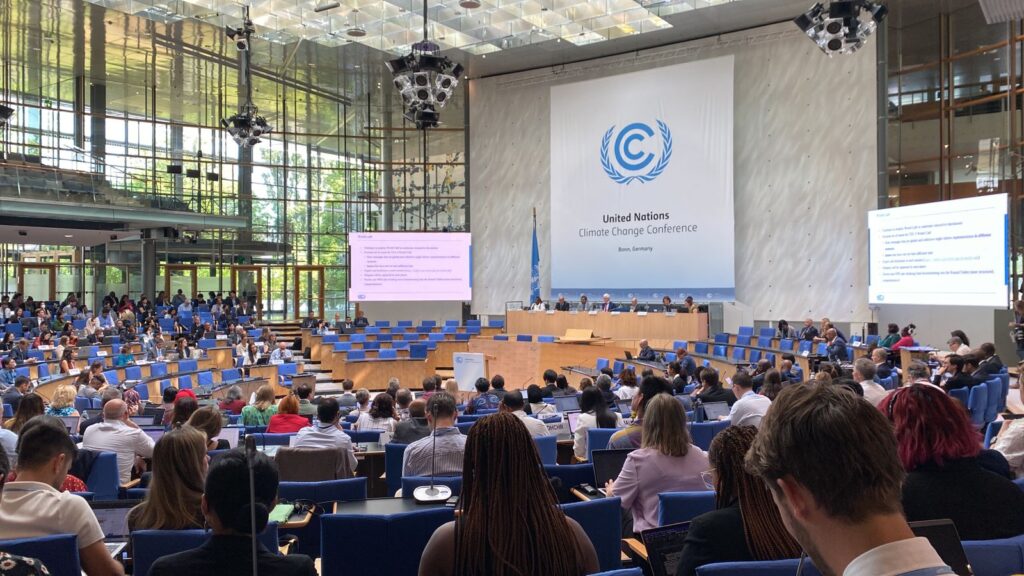
Bonn Conference, photo credits Lamin Dibba
Written by Lamin Dibba
MSc Agriculture and Development student at the Graduate Institute of International Development Agriculture and Economics (GIIDAE), a 2022/2023 Chevening Scholar at the University of Reading, and a member of the International Association of Students in Agriculture and related Sciences (IAAS)
Day 6 – Showcasing Youth-Led Good Practices
This event focused on young people leading innovative adaptation solutions across Europe, with a particular emphasis on the city of Bonn. The Bonn based group prepared policy recommendations for implementation in the Technical Dialogue (TD) on adaptation, which was part of the documentation submitted to the UNFCCC, demonstrating how youth-led adaptation initiatives can be included in decision-making processes.
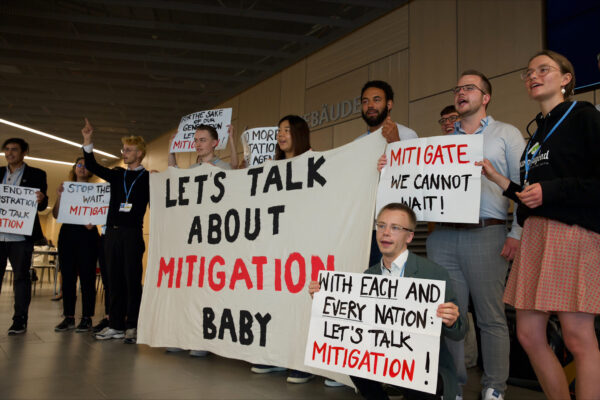
Photo credit: Lamin Dibba
Day 7 – Youth driving climate action on the road to the Africa Climate Summit and COP28
The event featured Brian Maina from the African Youth Assembly in Kenya and Shaemma Mebwana from the office of the CEO’s Youth Advisory Panel in the United Arab Emirates.
Brian Maina spoke about a new initiative called the African Youth Summit, which aims to give a platform to unheard voices from all over the African continent, particularly those of the most disadvantaged young people. He remarked that the Global Center on Adaptation (GCA) is supportive of: “Youth driving climate action on the road to the Africa Climate Summit and COP28”. Shaemma Mebwana highlighted the vitally important role of four voices during COP28: COP presidency, UNFCCC secretariat, the CEO’s Youth Advisory Panel in the United Arab Emirates and the Global youth secretariat.
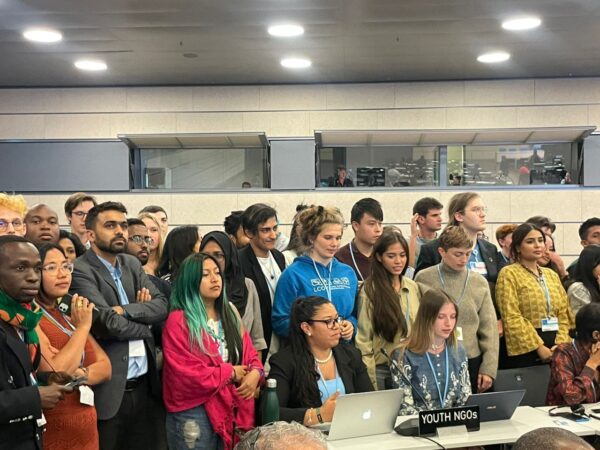
Photo credit: Lamin Dibba
Day 8 – Fostering International Cooperation in Bonn
Dr. Ursula Sautter, the Deputy Mayor of the City of Bonn, addressed a diverse audience consisting of 50 nationalities, expressing her gratitude for their presence. She highlighted the importance of gender equality and welcomed the participation of representatives from the UNFCCC and various stakeholders. Dr. Sautter acknowledged the challenges posed by climate change and referred to recent floods in Bonn as an example of the impacts. She also highlighted Bonn’s aim to be climate neutral by 2024 through the implementation of nature-based solutions such as green roofs.
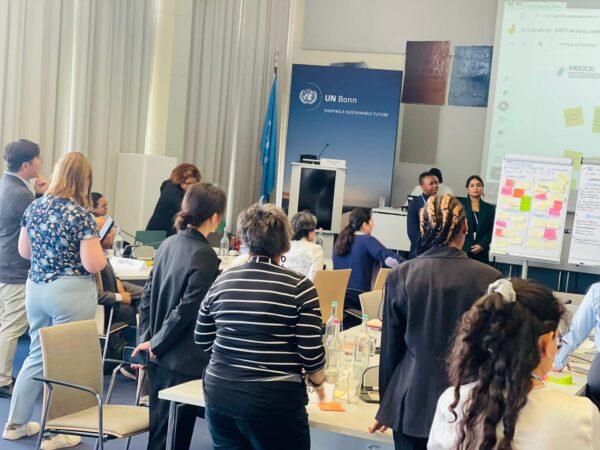
Photo credit: Lamin Dibba
Day 9 – The Science of Impacts, Adaptation and Vulnerability
On the penultimate day of the conference Prof. Debra Roberts, Co-Chair of Working Group II of the Intergovernmental Panel on Climate Change (IPCC), emphasized the importance of providing facts and figures and relying on scientific evidence to inform decision makers. However, she also highlighted the need for a comprehensive societal response to address climate change stressing the significance of including all stakeholders and considering future generations in the decision-making process by emphasising climate education.
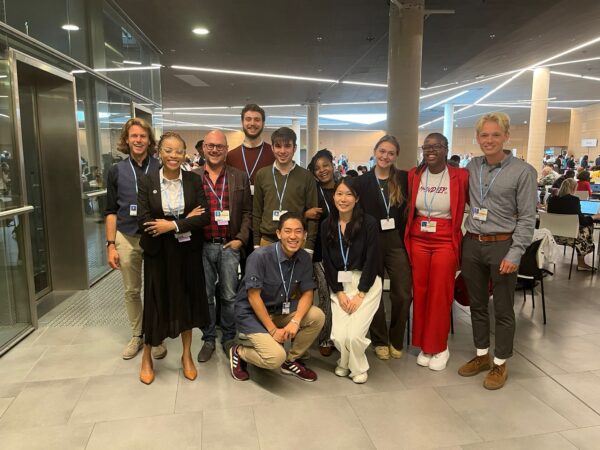
Photo credit: Lamin Dibba
Day 10 – From Bonn to Dubai: Challenges and Opportunities
The final day of the proceedings gave an opportunity for a summing up of how best progress can be made at COP28 in Dubai. Ina Parvanova, Director of Communications and Engagement at UNFCCC emphasized the importance of youth involvement in addressing the human-induced climate changes since actions and decisions made today would impact future generations who will inherit the world. Andrea Meza, the Deputy Executive Secretary of UNCCD, highlighted the importance of the adaptation agenda, mitigation efforts, and the phasing out of fossil fuels and emphasized the need to address all these issues in an integrated manner, adopting a systemic approach to achieve development goals.
Mike Girling, the Director of External Affairs at Global Center on Adaptation (GCA), introduced GCA and its association with Ban Ki Moon, emphasizing the organization’s research and on-the-ground efforts in relation to large-scale investments. Girling announced that over $2 million would be invested in small and medium-sized enterprises through Youth Adapt Challenge. He highlighted the numerous benefits of such investments and expressed his satisfaction in launching a toolkit designed to provide youth with resources on adaptation and leadership in order to facilitate implementation and knowledge sharing.
In summing up, Girling reflected the spirit of the conference, emphasising the significance of youth involvement in making adaptation efforts more effective and stating that it is now the responsibility of young people to rally behind others and to support the climate adaptation agenda.

